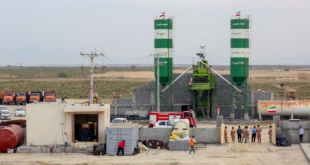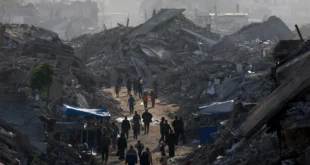Exasperation with Croatia’s failure to create an independent border-monitoring mechanism to investigate allegations of migrant rights abuses is growing – something which could harm the country’s bid to join the passport-free Schengen zone.
Croatia’s Interior Ministry has failed to submit to the European Commission a proposal for establishing an independent border-monitoring mechanism for migrant rights despite working on it since November, while sources tell BIRN that the draft proposals they have seen fall far short of being able to guarantee the mechanism’s independence.
Amid mounting evidence of brutal push-backs by Croatian border police and revelations that the European Border and Coast Guard Agency (Frontex) has been complicit in violations, establishing a Croatian border-monitoring mechanism has turned into a litmus test for the EU in its attempt to build an effective, comprehensive, lasting and humanitarian solution to the migration crisis that reached its peak in 2015. Human rights organisations and Members of the European Parliament have called into question Croatia’s bid to join the passport-free Schengen zone in light of the lack of respect for human rights at its borders.
Croatia’s Interior Ministry was tasked during a November visit to Zagreb by officials of the European Commission and the Fundamental Rights Agency (FRA) with drawing up a draft mechanism as a basis for negotiations. But the government’s delay in submitting a proposal prompted the Commission to send a reminder on January 20 and European Commission spokesperson Adalbert Jahnz confirmed to BIRN that a draft had still not been received by February 8.
Croatia’s Interior Ministry told BIRN in an email that it is “too early” to provide information on the architecture of the mechanism, as it “is a very sensitive issue”. It also confirmed that details of the proposal have not yet been communicated to the Commission, because “the harmonisation procedure at the national level is still pending”.
Pattern of delays
However, this is not the first time Croatia has been caught dragging its heels on coming up with a border-monitoring mechanism. In 2018, the Commission allocated 300,000 euros in emergency funding for this purpose amid mounting evidence of push-backs and poor treatment of migrants attempting to cross into the country.
Over the subsequent two years, Croatia has batted away questions about implementation of a monitoring mechanism, with the authorities claiming either that the mechanism was unnecessary since monitoring functions were already working or that the program was actually being implemented. In November, the European Ombudsman, following a complaint by Amnesty International, opened an inquiry into the Commission’s failure to ensure the creation of the mechanism.
In June 2020, emails from Commission officials, leaked by The Guardian, exposed concerns in Brussels about Croatia’s failure to allocate and utilise the earmarked money, which demonstrated the country’s “lack of commitment to a monitoring mechanism”.
The creation of an independent monitoring mechanism in Croatia acquired additional significance in September when the Commission released a proposal for a New Pact on Migration and Asylum, which included provisions for the establishment of national independent border-monitoring mechanisms throughout the EU.
“This has turned the Croatian case into a testing ground,” Milena Zajovic, advocacy manager for the Border Violence Reporting Network, told BIRN.
Monitoring only at official crossings
An internal report prepared after the visit of the Commission and FRA to Croatia on November 17-18, which BIRN has seen, contains numerous ideas about the design and architecture of a future mechanism, which were developed during consultations with national authorities, NGOs and international organisations.
These include: making publicly available the mechanisms database; allocating funds directly to those implementing monitoring to ensure independence; threatening sanctions for member states that do not take measures or ignore findings; cross-border cooperation with the relevant third-country authorities to allow better collection of evidence about the conduct of the Croatian border police; and support verifications with experts who have the appropriate knowledge of Interior Ministry systems and communications, to be provided by the State Attorney’s Office or Frontex, and give them a mandate to decide on the place and time of investigations.
However, according to the Border Violence Reporting Network’s Zajovic, a draft position paper circulated among Croatian MPs by the Interior Ministry proposes only that monitoring should focus on official border crossings.
“This is what happens when you ask an [Interior Ministry] to design an independent mechanism to monitor themselves. It’s a very absurd situation,” said Zajovic. “Push-backs don’t happen at border crossings. In practice, refugees are unable to approach those places from the Bosnian side anyway.”
The situation at the border and the attitude of the Croatian authorities certainly does not appear to be improving to any degree.
Earlier this month, Croatian police blocked four Italian MEPs from approaching an area on the border with Bosnia and Herzegovina, following concerns about the mistreatment of refugees in the area. Croatia’s Interior Minister, Davor Bozinovic, characterised their effort as a provocation.
And according to the Commission and FRA’s internal report, the United Nations Human Rights Council (UNHRC) “confirmed that the situation is unchanged in terms of the allegations of push-backs noted on the Croatian external border as evidenced by the 267 ‘incident reports’ involving 2,680 individuals submitted to the Ministry of Interior since 2016, plus 11 individuals in the latest report of 6 October 2020.”
In a press release on January 28, the UNHCR expressed concern about the rise in push-back allegations at the EU’s external borders and urged EU member states to support the mechanisms proposed in the EU’s New Pact on Migration and Asylum.
“For such mechanisms to be independent and effective, they need to provide for independent monitors or monitoring entities and provide for adequate safeguards in this respect, as well as for automatic investigations of incidents monitored with timely information to the concerned individuals,” a UNHCR spokesperson told BIRN.
“Further efforts are also needed in the Western Balkans to develop protection-sensitive border management in the context of the capacity-building support provided by EU agencies,” the spokesperson added.
The UNHCR said it stands ready to offer technical support, expertise and guidance while awaiting information on what is proposed, but the UN refugee agency does not intend to participate in the implementation of the mechanism.
Zajovic said other interested third parties, like independent NGOs or the Croatian Ombudsperson, will be very careful before agreeing to commit to any implementation of the mechanism by the Croatian authorities. “They are aware there won’t be any independent investigations – they are worried about being used,” she said.
 Eurasia Press & News
Eurasia Press & News



